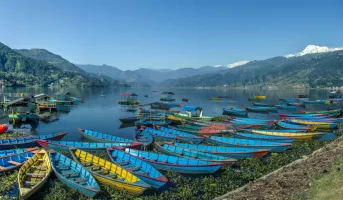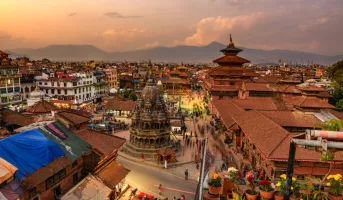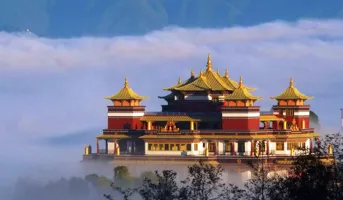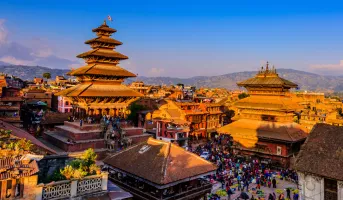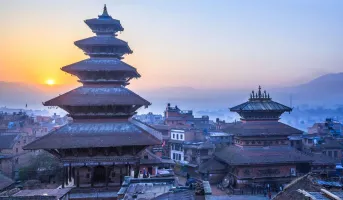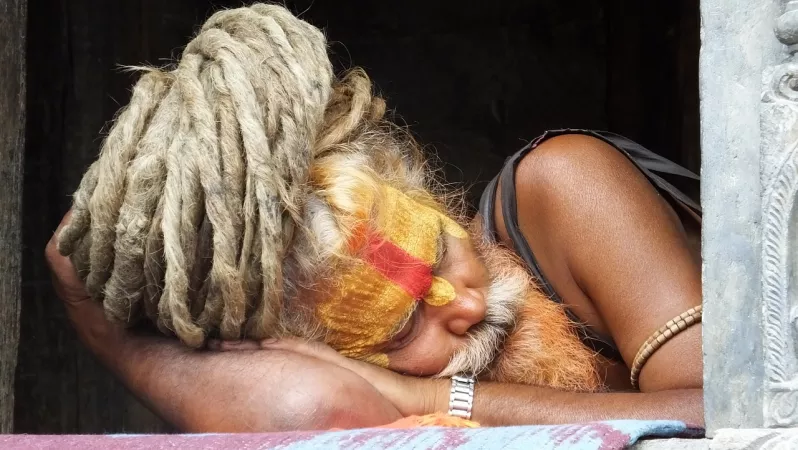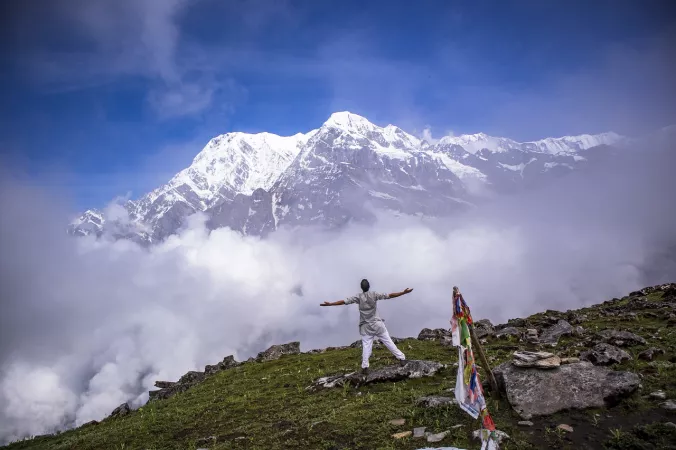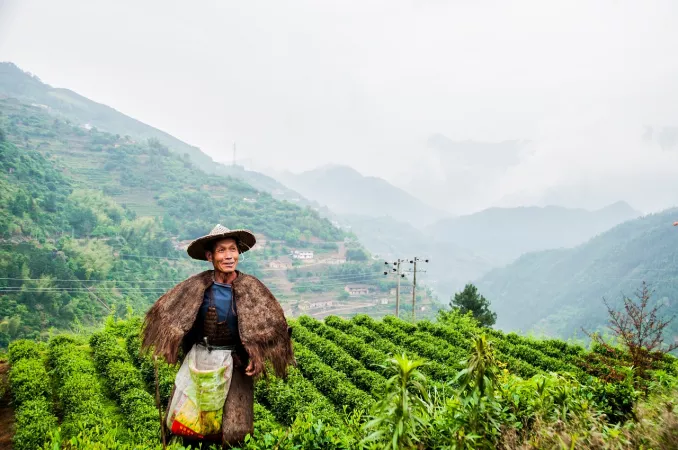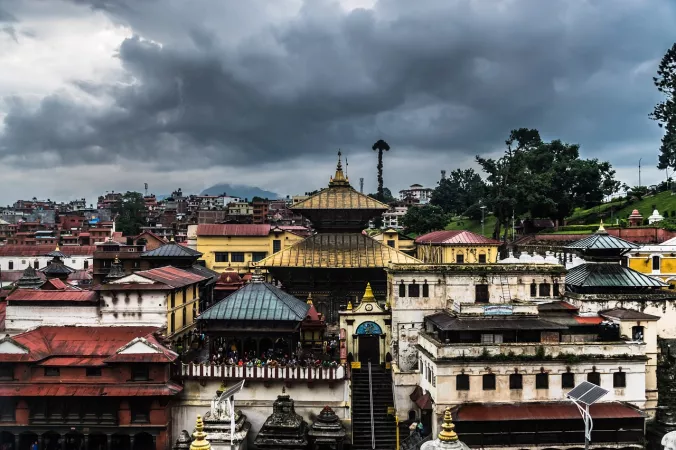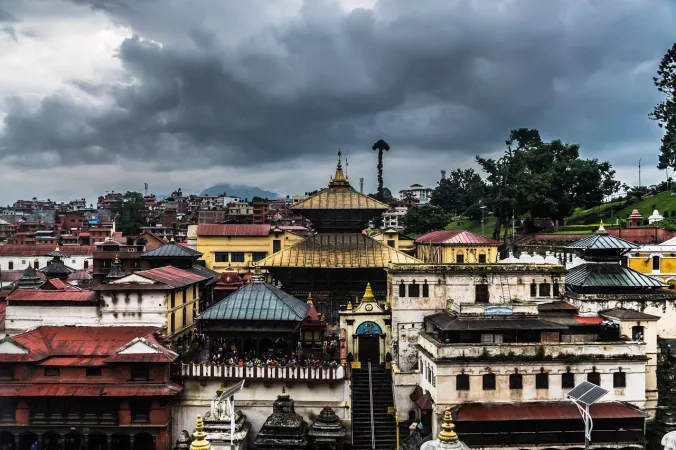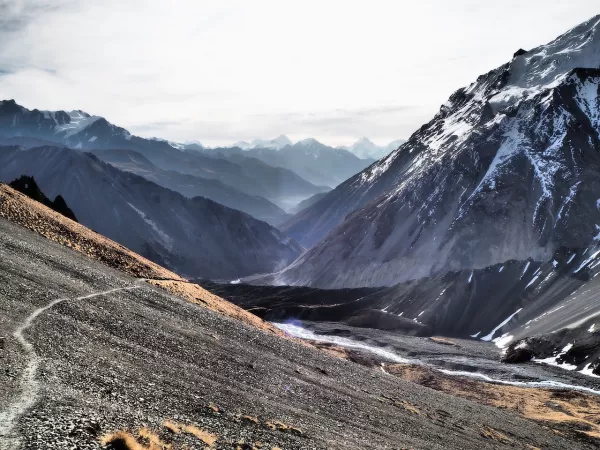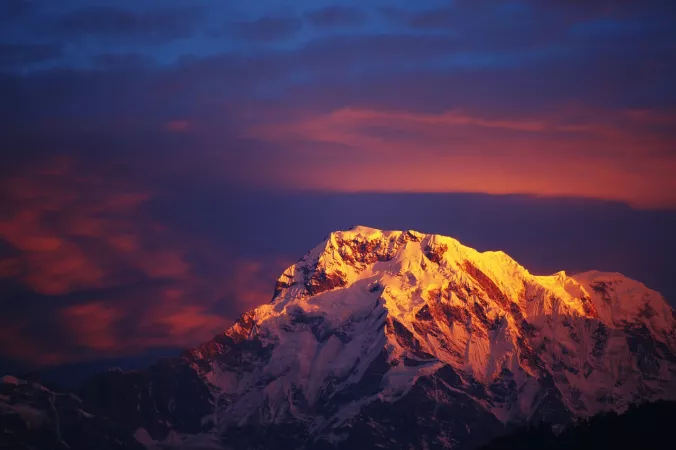
Pokhara
Duration
3 to 5 Days
3 to 5 Days
Best time to visit
Sep-Feb
Sep-Feb
Theme
Hill Station, Adventure, Waterfront
Hill Station, Adventure, Waterfront
Pokhara Travel Guide
Pokhara, located in Nepal, is a mesmerizing city known for its stunning natural beauty and serene lakes. Surrounded by the Annapurna range and filled with lush greenery, Pokhara is a paradise for nature lovers and adventure enthusiasts. The city also holds cultural significance as a starting point for treks to the Himalayas and a hub for yoga and meditation retreats.Top Attractions in Pokhara
1. Phewa Lake 2. World Peace Pagoda 3. Sarangkot 4. Gupteshwor Cave 5. Devi's FallPokhara is Famous for
Its breathtaking views of the Annapurna range and tranquil lakes.Top Attractions in Pokhara
- Phewa Lake - World Peace Pagoda - Sarangkot - Gupteshwor Cave - Devi's FallWhat's Great about Travelling to Pokhara?
- Perfect for nature lovers - Ideal for adventure seekers - Peaceful and serene atmosphereWhat's Not So Great about Travelling to Pokhara?
- Limited nightlife options - May not be suitable for those seeking a bustling city experience - Altitude sickness can be a concern for some travelersTravel Tips for Pokhara
- Check visa requirements before traveling - Opt for local transportation options like taxis or buses - Respect local customs and traditions - Stay hydrated and acclimatize to the altitude slowlyImportant Pokhara trip information
- Ideal Duration: A week is ideal to explore Pokhara and its surroundings.
- Best Time to Visit: The best time to visit Pokhara is from September to November for clear skies and pleasant weather.
- Nearby Airports and Railway Stations: Pokhara Airport is the closest airport, and the nearest major railway station is in Kathmandu.
Per Person
25,450
*EXCLUDING APPLICABLE TAXES 4.9 Ratings
( 185 Reviews )
( 185 Reviews )
Per Person
25,500
*EXCLUDING APPLICABLE TAXES 4.9 Ratings
( 185 Reviews )
( 185 Reviews )
Per Person
25,500
*EXCLUDING APPLICABLE TAXES 4.9 Ratings
( 185 Reviews )
( 185 Reviews )
Per Person
31,500
*EXCLUDING APPLICABLE TAXES 4.9 Ratings
( 185 Reviews )
( 185 Reviews )
Per Person
44,500
*EXCLUDING APPLICABLE TAXES 4.9 Ratings
( 185 Reviews )
( 185 Reviews )
Per Person
31,500
*EXCLUDING APPLICABLE TAXES 4.9 Ratings
( 185 Reviews )
( 185 Reviews )
FAQ's on Pokhara
Q1: What is the best time to visit Pokhara?
The best time to visit Pokhara is during the autumn months of September to November when the weather is pleasant, and the skies are clear, offering stunning views of the Himalayas. Spring, from March to May, is also a popular time with blooming flowers and moderate temperatures. Avoid the monsoon season from June to August due to heavy rainfall.
Q2: Do I need a visa to travel to Pokhara?
Tourists visiting Pokhara need a visa to enter Nepal, which can be obtained upon arrival at the airport or at land border crossings. Exceptions include Indian nationals. Ensure your passport is valid for at least six months beyond your intended stay.
Q3: What are the must-visit attractions in Pokhara?
Pokhara is famous for attractions like Phewa Lake, Davis Falls, World Peace Pagoda, Sarangkot for sunrise views, and the Annapurna Mountain Range. Adventure enthusiasts can enjoy paragliding, trekking in the Annapurna region, or visiting the International Mountain Museum.
Q4: Is Pokhara a safe place to travel?
Pokhara is considered a safe destination for travelers. However, exercise caution in crowded areas and be vigilant against petty theft. Avoid isolated areas at night and follow local advice for trekking and outdoor activities.
Q5: What is the local currency in Pokhara and can I use credit cards?
The local currency in Pokhara is the Nepalese Rupee (NPR). While credit cards are accepted in major hotels, restaurants, and shops, it's advisable to carry cash for small purchases and in rural areas. ATMs are available in Pokhara for withdrawing local currency.
Q6: What is the local cuisine like in Pokhara?
Pokhara offers a variety of Nepali cuisine with dishes like dal bhat (rice and lentil soup), momos (dumplings), and Newari cuisine. Don't miss trying local specialties like Thakali food and dhido (traditional Nepali dish). Vegetarian and vegan options are widely available.
Q7: What transportation options are available in Pokhara?
Transportation in Pokhara includes taxis, local buses, and rental bikes. Taxis are convenient for short distances, while buses connect different parts of the city. Rental services for motorcycles or bicycles are also popular for exploring Pokhara at your own pace.
Q8: Are there any cultural norms or etiquette I should be aware of when visiting Pokhara?
When visiting Pokhara, it's important to respect local customs such as removing shoes before entering temples or homes, and covering shoulders and knees while visiting religious sites. Greeting with "Namaste" is appreciated, and always ask for permission before taking photographs of locals.
Q9: I am a travel agent. How can I buy travel leads of Pokhara?
Register yourself as a travel agent at agents.tripclap.com and then you can buy travel leads to Pokhara once your account is approved. For more details contact our support team at +91-8069186564 or support@tripclap.com
